Best Cities To Live In Mexico In 2026
Mexico remains one of Latin America’s most compelling destinations, especially for North Americans. More than a million expats call it home, and tens...
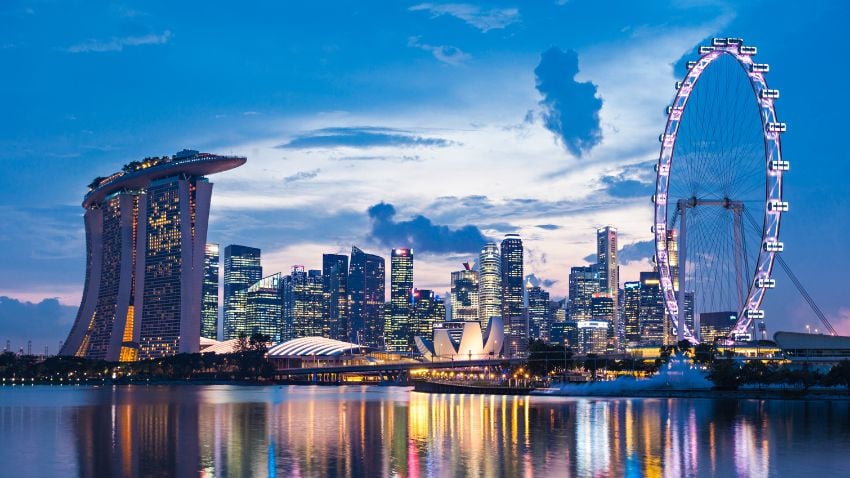
Singapore is a small island nation in South East Asia. Located just below Malaysia, on the Singapore Strait, Singapore has a great economy and is one of the wealthier nations in the world on a per capita basis. It is also the fourth largest financial center and one of the busiest ports in the world.
The city-state has seen an average of 7.7% economic growth since its independence. The Heritage Institute rates them as the world’s freest economy in 2022. Singapore has a population of only 5.6 million people, who are predominately ethnic Chinese. Their Changi Airport is consistently rated among the best in the world, featuring a nature-themed entertainment park and an indoor waterfall. Passengers on layovers can also enjoy substantial retail shopping, a wide variety of restaurants, and an Imax theatre.
Related content: Top 8 Locations Expats Can Build A Real Life Abroad
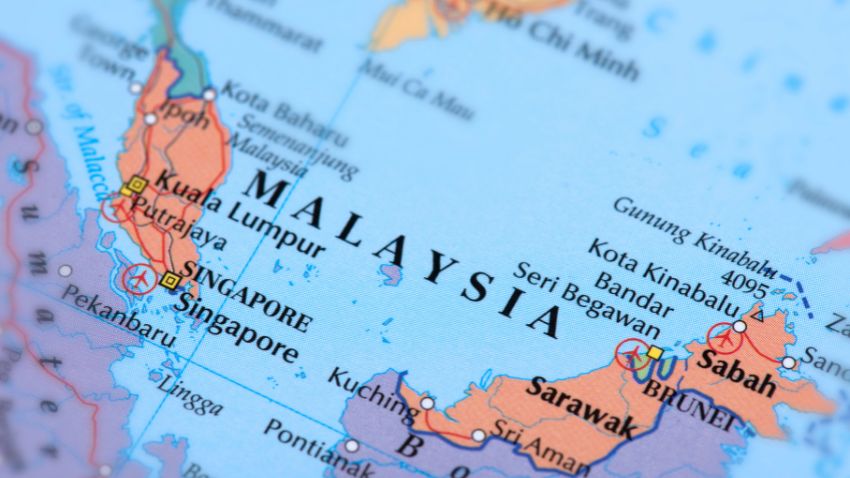
Map of Singapore
Obtaining Permanent Residency in Singapore is an advantageous situation for many individuals and families, as it offers a pathway to long-term residence and various benefits. The application process for Singapore Permanent Residence involves a thorough evaluation of eligibility and the submission of required documents.
For employed individuals, holding an Employment Pass often serves as a starting point. Spouses and family members can also be included in the application, making it a holistic process that caters to the whole family. Investors and entrepreneurs looking to expand their business presence in Singapore can explore this avenue as well.
The eligibility requirements vary based on factors such as employment history, business investments, and educational background. Applicants typically need to demonstrate their commitment to contributing to Singapore's economy and society.
The online application process streamlines the submission of documents and information, making it efficient and user-friendly. These documents may include certificates of education, employment, and health care records. Family members and parents can be sponsored, provided the applicant meets the stipulated criteria.
The government of Singapore grants permanent residency to individuals who qualify under one of the following categories:
Marriage to a citizen or permanent resident of Singapore;
The unmarried minor offspring of a citizen of Singapore or a permanent resident;
Elderly parent of a citizen of Singapore;
If you have work in Singapore along with an employment permit;
If you are a student who is going to school in Singapore;
Or if you have made a substantial investment in Singapore’s economy.
In addition to requiring applicants to meet one of the above criteria, the Immigration Authority also considers a number of other criteria when deciding whether to approve an applicant. Whether or not you have ties to the community, what economic contributions you have made, what familial ties you have if any, and how long you have been residing in Singapore are just a few of the many factors they consider.
While permanent residency allows you to live in Singapore indefinitely, if you want to leave and come back you will need a Re-entry Permit. There is also a quota on the number of permanent residents allowed to enter Singapore. No more than 30,000 people may qualify in any given year.
Another option for people that are interested in residency in Singapore is the Foreign Artistic Talent Scheme (ForArts). First introduced in 1991, this program is designed to allow talented artists residency in Singapore. To qualify under this program, you must meet all of the following criteria:
You must have formal artistic training;
You must have substantial professional experience;
You must have made a substantial impact on the cultural scene of Singapore;
You must have plans to be involved in the artistic and cultural scene in Singapore.
Singapore is also infamous for its draconian legal system and liberal use of corporal punishment in the form of caning. While this system is criticized by many as cruel and barbaric, Singapore has extremely low incidences of crime and is one of the safest countries in the world. As a vestige of British colonial rule, English is the most commonly spoken language in Singapore. Singaporean cuisine is a fascinating blend of Chinese, Malay, English, Indian, Indonesian, and Portuguese influences. Street vendors were historically a big part of the culinary scene, and today they have evolved into more hygienic hawker centers. Singapore is also renowned for its seafood.
Related content: The Basics Of How To Get A Second Passport Or A Second Residency
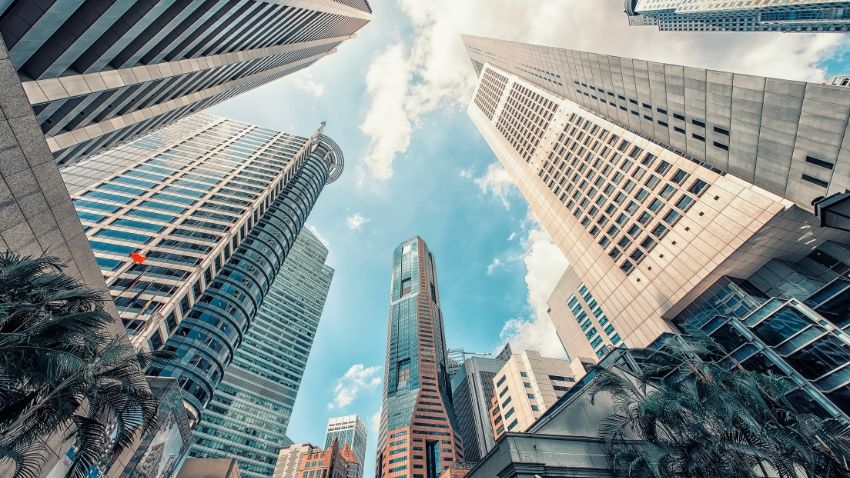
Downtown Singapore City
If you reside in Singapore for more than 183 days in a year, you are considered a tax resident. Regardless of whether you are or are not a tax resident, income earned from within Singapore is taxable. Singapore practices a territorial system of taxation, so any income which is sourced from outside of Singapore is not taxable regardless of your status as a tax resident.
Singapore has a progressive income tax, with a top marginal rate of 24%. In 2024 they will be implementing a new tax structure with higher brackets. The new tax structure in Singapore will be applied like this:
Your first $20,000 (in Singapore dollars which are 73 cents on the dollar compared to USD) is tax-free
$20,000 to $30,000 has a marginal tax rate of 2%
$30,000 to $40,000 has a marginal tax rate of 3.5%
$40,000 to $80,000 has a marginal tax rate of 7%
$80,000 to $120,000 has a marginal tax rate of 11.5%
$120,000 to $160,000 has a marginal tax rate of 15%
$160,000 to $200,000 has a marginal tax rate of 18%
$200,000 to $240,000 has a marginal tax rate of 19%
$240,000 to $280,000 has a marginal tax rate of 19.5%
$280,000 to $320,000 has a marginal tax rate of 20%
$320,000 to $500,000 has a marginal tax rate of 22%
$500,000 to $1,000,000 has a marginal tax rate of 23%
$1,000,000 on has a marginal tax rate of 24%
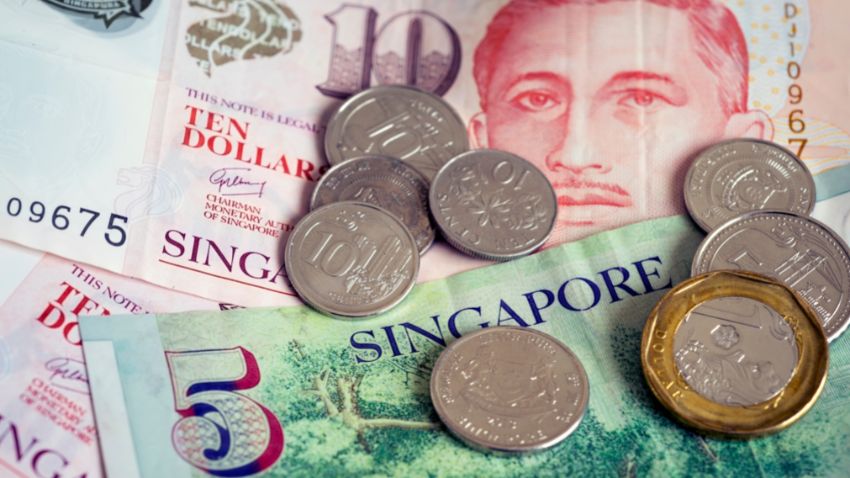
Singapore Dollar
There are many benefits to being a permanent resident in Singapore. You can access credit and financial services, enjoy the benefits of the Central Provident Fund, become a citizen, and apply for your family to become permanent residents as well. As a permanent resident, you would have access to Singapore’s lucrative job market, where workers enjoy high wages and great working conditions. You’ll be able to come and go as you like (subject to obtaining a re-entry permit), and you will be able to live, work and/or study in Singapore.
One significant advantage of Singapore Permanent Residency is access to quality education and healthcare facilities. Additionally, it grants residence status, allowing individuals to live and work in the country without the constraints of a work pass.
Permanent Residents in Singapore are exempt from national service, unlike Singaporeans, which can be a significant advantage for some applicants..
The official requirements and information on the Singapore Permanent Residence application process can be obtained from the Immigration and Checkpoints Authority (ICA) website, which offers comprehensive guidance on the application process.
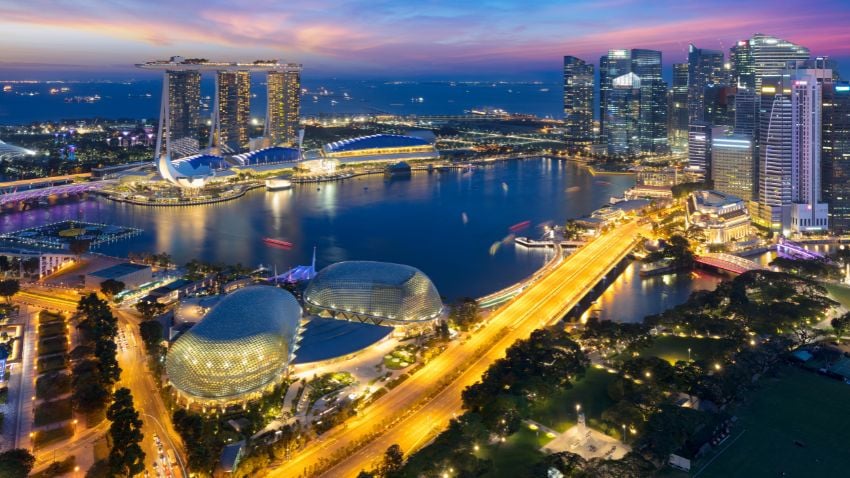
While Singaporeans are required to complete national service, Permanent Residents are not subjected to this obligation, which can be a significant factor for some applicants
In conclusion, Singapore Permanent Residency is highly sought-after for its numerous benefits, including access to quality education, healthcare facilities, and a pathway to citizenship. The application process, although thorough, has been made more convenient and user-friendly with the introduction of the online portal by the official authority. This online platform streamlines the submission of required documents and information, making it more accessible and appealing to individuals who meet the eligibility criteria.
If you want the best intel from the expat world, including profitable offshore opportunities, little-known tax-saving strategies, and hard-won insights on immigration, passports, and Plan-B residencies, all delivered to your inbox every single week, then join our daily correspondence, EMS Pulse®. Currently enjoyed by over 84,000 expats and expat-hopefuls worldwide. Fill in the form below to join our newsletter free:

Written by Mikkel Thorup
Mikkel Thorup is the world’s most sought-after expat consultant. He focuses on helping high-net-worth private clients to legally mitigate tax liabilities, obtain a second residency and citizenship, and assemble a portfolio of foreign investments including international real estate, timber plantations, agricultural land and other hard-money tangible assets. Mikkel is the Founder and CEO at Expat Money®, a private consulting firm started in 2017. He hosts the popular weekly podcast, the Expat Money Show, and wrote the definitive #1-Best Selling book Expat Secrets - How To Pay Zero Taxes, Live Overseas And Make Giant Piles Of Money, and his second book: Expats Guide On Moving To Mexico.

Mexico remains one of Latin America’s most compelling destinations, especially for North Americans. More than a million expats call it home, and tens...

South Korea is far more than K-pop and K-dramas. It is a country known for outstanding food, from bustling street markets to high-end dining, as well...
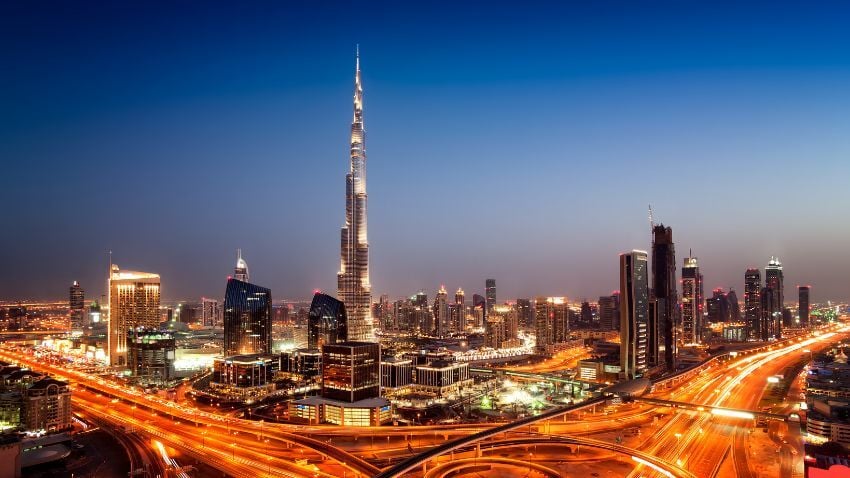
Asia is one of the most fascinating regions in the world for travel, offering an extraordinary mix of cultures, histories, and landscapes. From...